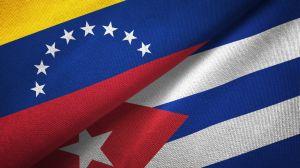Cuba Considers Accepting Venezuelan Petro in Bilateral Deals
Venezuela is in talks with Cuba about using the Petro, the former’s state-issued, oil-backed cryptocurrency, in bilateral payments including trade deals.

Per the Venezuelan state-run newspaper Correo del Orinoco, the two nations talked on the matter of cryptocurrencies at their most recent intergovernmental summit, held in the Casa Amarilla in Caracas last week.
The newspaper states,
“An important announcement was made at the meeting: Both countries will evaluate guaranteeing their agreements with the Petro cryptocurrency.”
The Venezuelan and Cuban governments made a number of trade-related agreements at the summit and pledged to work together on a number of economic measures.
The nations have signed an estimated 1,400 agreements since 2000, and reaffirmed their ties last week in Caracas, with sport, culture, energy, telecommunications, healthcare and agriculture pledges signed.
Correo del Orinoco stated that using the Petro in these deals would help “strengthen the economy and Venezuelan means of production.”
Both nations have been hit heavily by American sanctions, which have escalated significantly in the past year.
Caracas has openly spoken about its determination to bypass Washington’s sanctions via its crypto-economic drive. President Nicolás Maduro claims that international parties have accepted Petro payments in the past – despite American assertions that any companies or nations found to be dealing in Petros will face punitive measures.
Regardless, Maduro has stated on several occasions that he remains in talks with international counterparts about accepting the Petro in payments deals. Moscow has previously discounted the possibility of dealing in the Petro, but Maduro is thought to be optimistic about changing Vladimir Putin’s mind on the matter.
Venezuela’s other major ally, Iran, could also be targeted as another potential Petro collaborator should Havana decide in favor of using the oil-backed cryptocurrency.
An American think-tank last year warned that America’s opponents (including Iran, Venezuela and Russia) are drawing up long-term strategies involving digital currencies, cryptocurrencies, and stablecoins in an effort to bypass United States sanctions.




